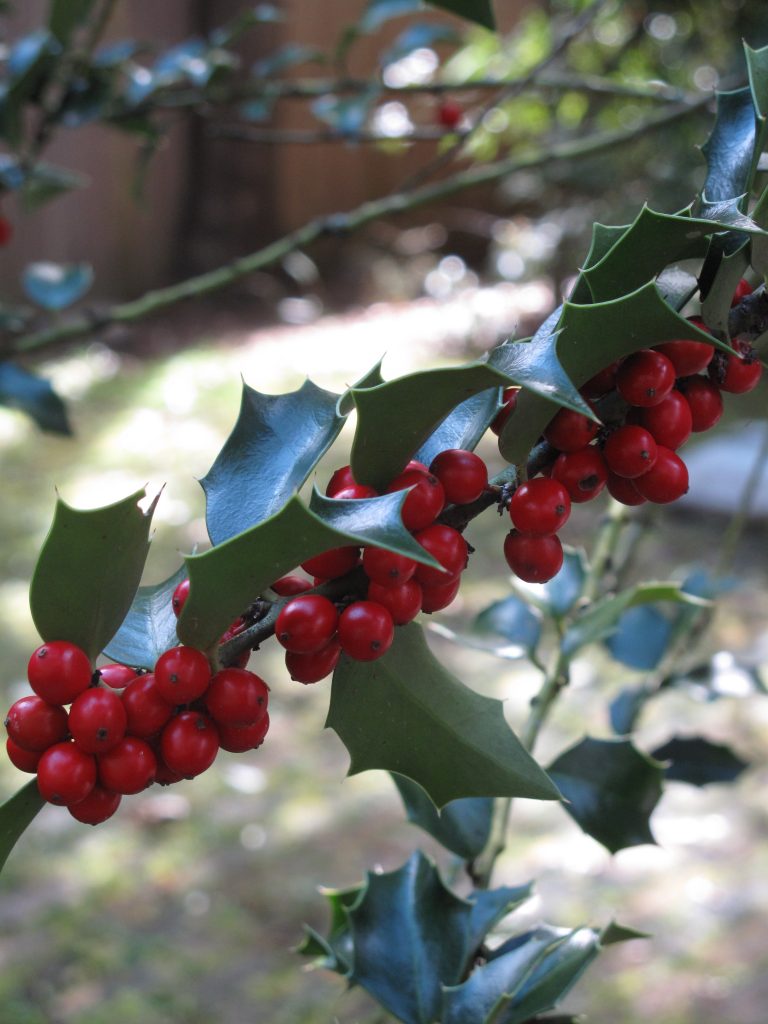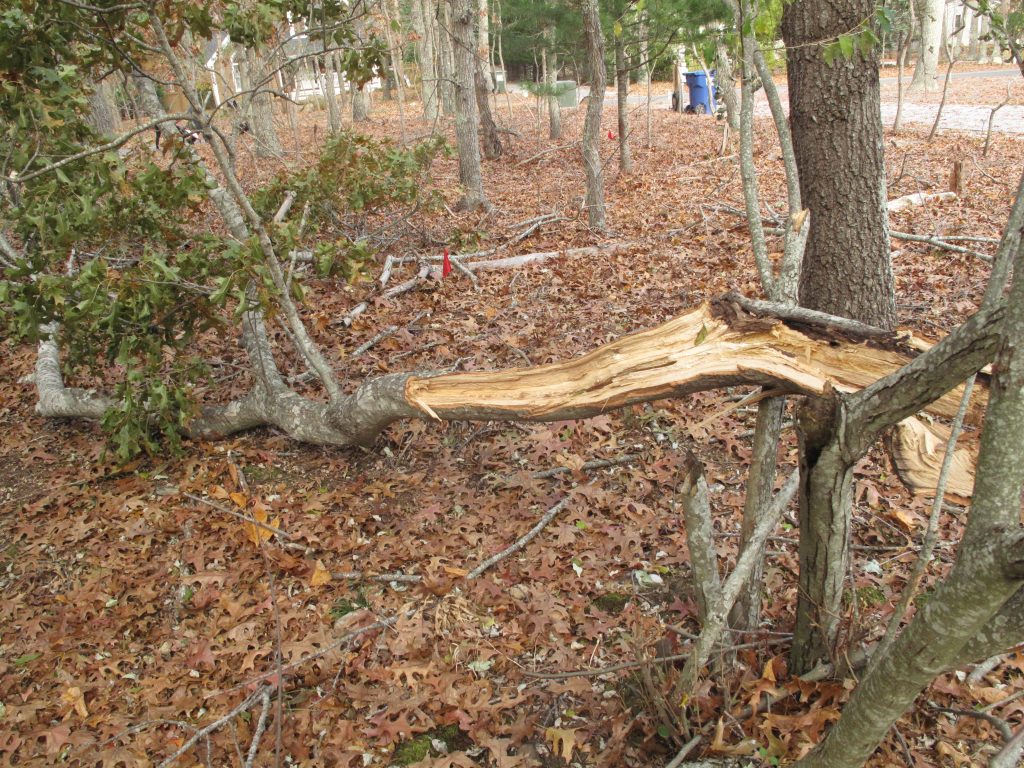
Monday, December 6
A dramatic storm in the early morning hours included startling lightning and thunder. It woke me, but, I’m happy to say, Emily slept through it.
At the time, I wasn’t aware of lots of wind but there must have been some: Glancing out the window now, I can see another large oak tree has split open and fallen into the front yard. Where will the destruction end?
The tree service guy—a “Certified Arborist” no less—came by a few days ago to make an estimate on how much he’d charge to remove storm-damaged trees and limbs. (Horrifying numbers.) He said that the type of wind here has changed—nowadays, we get swirling, tornado-like winds that whip trees around in ways they aren’t prepared for. And these winds are very selective: They’ll break trees apart on one property and leave the next-door lot totally undisturbed.
I went back to sleep after the storm and dreamed that I was working in a detention facility for teenage offenders. In the dream, I have some Acetone or paint thinner, which I intend to use on a project, not sure just what. One of the boys asks if he can have some, and I pour out a bit into a jar for him. It seems the stuff can be used as invisible ink—and that’s what he intends, in a letter to someone. I say, hey, that can be traced back to me! I wash the outside of my bottle, hoping to remove fingerprints, and decide that I should get rid of the bottle.
I must be watching too many streaming-video crime dramas. They seem to be infecting my dreams.
We’ll be going back to the city again tomorrow. Emily has yet another dentist appointment on Wednesday, and I have an appointment with a neurologist on Thursday. I had a seizure a few years back, and it seems I must check in with her every so often in order to keep my Rx coming. She’ll probably send me to the NYU lab to have blood taken….
The weatherman predicts more gusting wind and a bit of rain for today. On Wednesday, there’s a 60% chance of snow here, perhaps an inch, but if temps remain in the upper 30s, even that may not happen.
Dinner: an omelet, green beans, and a baked potato. All modest offerings in order to empty out the larder.
Entertainment: final episodes of Netflix’ “The Imposters.” It’s an entertaining series about a bunch of grifters, but there are a very large number of episodes. In recent times we’ve also enjoyed the intricate Martin Scorsese kids’ movie “Hugo”; the 1976 François Truffaut flick “Small Change,” which is also about kids and their mostly innocent adventures; and the mysterious, 1990 Icelandic film “The Juniper Tree,” which is loosely based on a Brothers Grimm tale and features budding star Björk.

